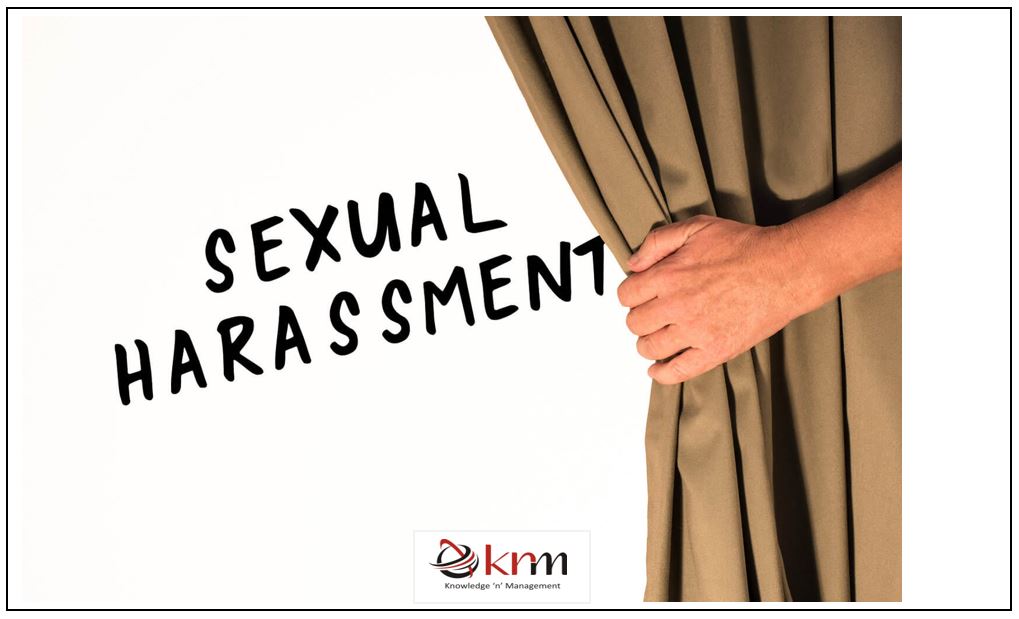Sexual Harassment Policy
- Introduction
A sexual harassment policy is a set of guidelines and procedures put in place by an organization to prevent and address instances of sexual harassment in the workplace or any other environment where the policy applies. It is designed to ensure a safe and respectful environment for all individuals and to protect them from any form of harassment.
Unwanted sexual behaviour that makes a person feel offended, humiliated, or intimidated is known as sexual harassment. It also includes situations that make the recipient feel threatened, intimidated, or humiliated, such as when someone is required to engage in sexual activity as a condition of employment.
- Applicability
In India, POSH compliance is required of all businesses with more than 10 employees. All of the Employer’s Employees are entitled to a safe and secure working environment, and the Employer shall take all appropriate measures to avoid sexual harassment at the Workplace.
In case of organizations, where there are less than 10 employees the act mandates every district in the country to create a local committee (LC) to receive complaints from women working in such organizations and from the informal sector, including domestic workers, home-based workers, voluntary government social workers and so on. They should also have a Sexual harassment policy in place to avoid future problems.
- Importance
Why sexual harassment policy is required in the organizations?
An effective anti-harassment policy serves as a deterrent. having a written policy in place that prohibits sexual harassment, details actions that would qualify as harassment, and gives staff members ways to report harassment. It provides freedom to employees to working freely without thinking of being sexual harassed. It gave the assurance to the employees that the employer or any top-level person will not harass them in the organization in which they are working.
- Internal Complaint Committee (ICC)
According to the POSH Act, employers with ten or more employees must establish an internal complaints committee to address sexual harassment claims made against them as well as to oversee and manage sexual harassment claims. It is necessary to establish an internal complaints committee, which must deliver an annual report to the district officer and employer.
The committee should be headed by a woman, have at least two women employees, another employee, and, to pre-empt any undue pressure from senior levels, to include a third party such as an NGO worker with five years of experience, familiar with the challenges of sexual harassment.
- Annual Report
The Prevention of POSH Act, mandates an Annual Report (“Annual Report”) that is to be filed annually by an organization to the relevant district authority. The dates of the filing differ from state to state between 31st December and 31st January and each state, through a notification, notifies the district authority that the report is to be filed to and the deadline for the same. The following are a few particulars on the same:
There are two reports to be submitted by the employer:
- Annual Report to the Employer and District Officer – The Annual report is a report prepared by the Internal Committee of the Organization and filed before the District Officer.
- Report to the Registrar of Companies – The Ministry of Corporate Affairs, in 2018, amended the Companies (Accounts) Rules 2014. By this amendment, it is now mandatory for a company to make a statement in the Director’s Report that it has complied with the provisions regarding the constitution of the Internal Complaints Committee (ICC). This is a disclosure made by a company in the Director’s report and is filed before the Registrar of the company. This Director’s Report is filed along with the annual returns to the Registrar of companies.
- Penalty
What if employer fails to comply under POSH Act?
If an employer failed to comply under POSH Act, it may cause the employer to a penalty INR 50,000. The penalty can be caused on the employer under the following circumstances:
- Failure to constitute Internal Complaints Committee
- Failure to act upon recommendations of the Complaints Committee;
- Failure to file an annual report with the District Officer where required; or
- Contravening or attempting to contravene or abetting contravention of the Act or Rules.
Where an employer repeats a breach under the Act, they shall be subject to:
- Twice the punishment or higher punishment if prescribed under any other law for the same offence.
- Cancellation/Withdrawal/Non-renewal of registration/license required for carrying on business or activities.



